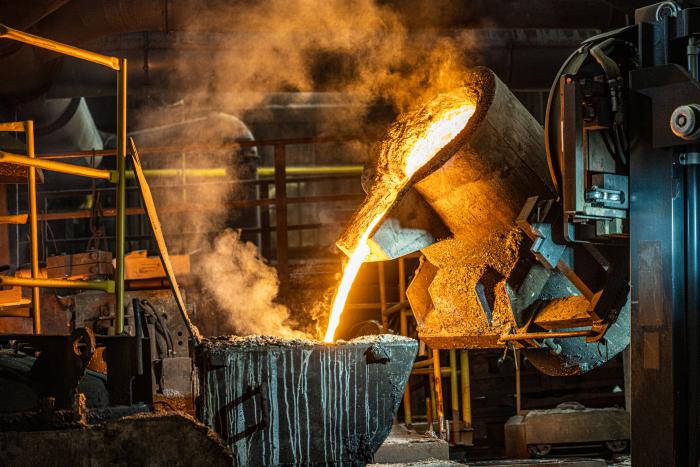UMD Researcher Helps Identify Low-Cost Ways for Steel Manufacturers to Reduce Carbon Emissions
Efforts could reduce global emissions by 22 gigatons between 2020 and 2050
Steelmaking accounts for approximately 7% of the world’s carbon dioxide emissions, and is widely regarded as one of the most challenging sectors to decarbonize. Research recently published in Nature, co-authored by University of Maryland Department of Geographical Sciences Professor Laixiang Sun, proposes a solution.
With scholars from the University College London, the University of Cambridge, and Tsinghua University, Sun helped create a Net-Zero Pathways for Steel model through which nearly 2,000 steel manufacturing plants—that account for 80%-90% of the sector’s emissions—should be able to greatly reduce global carbon emissions.
The researchers found that with their approach, plants could reduce global emissions by 7.2-7.8 gigatons by 2030. The changes the plants would have to adopt in order to reach those reductions—including reusing scraps and making energy efficient upgrades—would cost the plants $0.30 per ton, on average, to execute. However, by making these changes, some plants could reduce their operational costs by $8 per ton, resulting in net savings.
The researchers found that further reductions in carbon dioxide emissions—6 gigatons—could be made between 2030 and 2040 by capturing the carbon dioxide released during ore smelting and either storing it underground or using it in other applications. According to the researchers’ estimates, this would cost plants in China $7-$15 per ton, and plants in Japan, Korea and Europe $26-$75 per ton.
An additional 0.3 gigatons of carbon dioxide could be saved after 2040 by European plants switching to hydrogen-based steelmaking, which would cost them between $27-$44 per ton.
Policymakers requiring one such “medium-deployment pathway”—which would have manufacturers make low-carbon adjustments first, then zero-carbon retrofits last—would result in a total of 22.4 gigatons of carbon dioxide being saved at the lowest cost of $24.70 per ton between 2020 and 2050, the researchers estimate.
“This work shows that decarbonizing steel is not a monolithic challenge; it’s thousands of distinct investment decisions, each with its own least-cost timing and technology,” said Sun. “By aligning plant-level economics with national net-zero goals, we give industry and policymakers a practical playbook to cut emissions fast where it’s cheapest today, while paving the way for carbon capture and green hydrogen as they scale.”
Read “Technological Pathways for Cost-Effective Steel Decarbonization”
Photo by iStock
Published on Thu, Nov 13, 2025 - 9:43AM




